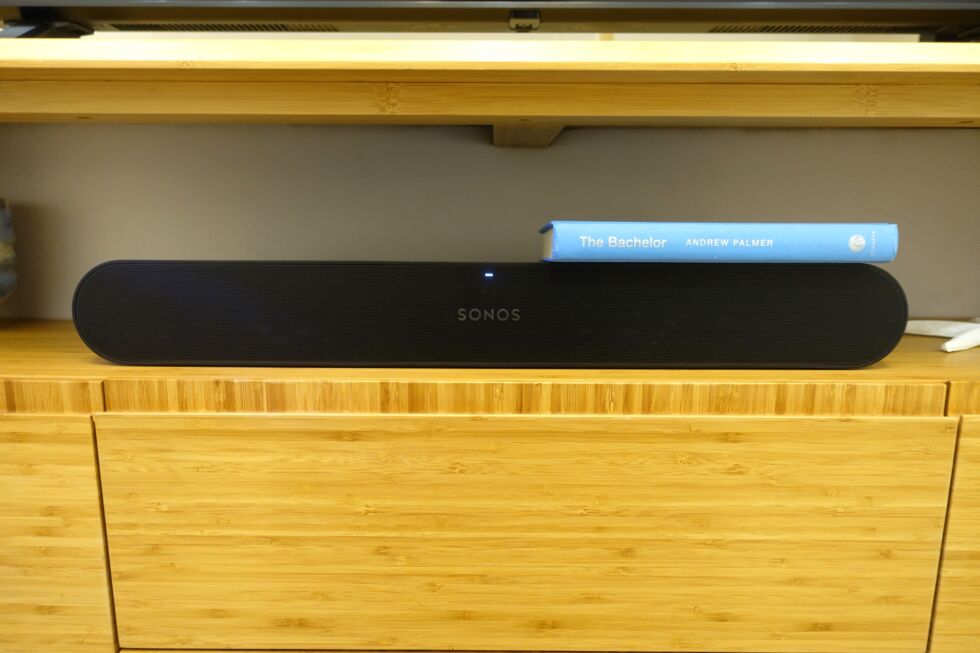-

The new Sonos Ray is Sonos' most compact and affordable soundbar to date. [credit: Jeff Dunn ]
Confirming earlier rumors, Sonos on Wednesday announced a new soundbar aimed at more budget-conscious buyers, as well as a new voice-control feature for its existing speakers.
The former is called the Sonos Ray and will be available on June 7 for $279 (279 pounds, 299 euros). It'll slot in beneath the $449 Sonos Beam (Gen 2) and $899 Sonos Arc as the popular connected speaker maker's most affordable and most compact soundbar to date, measuring in at 559×95×71 mm (so, about 22 inches wide). By comparison, the similarly compact Sonos Beam comes in at 651×100×69 mm (about 25.6 inches wide). As with the Beam, the Ray's small size should make it best suited with smaller rooms and secondary TVs, though Sonos posits the device could also work on a desktop and more generally positions it as a starting point for those interested in their first upgrade from their TV's built-in speakers.
Paying less means you'll sacrifice some features, though. Unlike the Beam and Arc, the Sonos Ray doesn't support Dolby Atmos virtual surround sound. It also lacks an HDMI port, instead opting for a lower-bandwidth optical audio port and an Ethernet jack as its only connectivity options, with no additional HDMI adapters in the box. The omission of an HDMI ARC port could make the cable situation a bit messier for those with more involved home theater setups, though Sonos says the Ray can still work in parallel with your TV remote through its IR receiver.
Read 17 remaining paragraphs | Comments
-

The new Sonos Ray is Sonos' most compact and affordable soundbar to date. [credit: Jeff Dunn ]
Confirming earlier rumors, Sonos on Wednesday announced a new soundbar aimed at more budget-conscious buyers, as well as a new voice-control feature for its existing speakers.
The former is called the Sonos Ray and will be available on June 7 for $279 (279 pounds, 299 euros). It'll slot in beneath the $449 Sonos Beam (Gen 2) and $899 Sonos Arc as the popular connected speaker maker's most affordable and most compact soundbar to date, measuring in at 559×95×71 mm (so, about 22 inches wide). By comparison, the similarly compact Sonos Beam comes in at 651×100×69 mm (about 25.6 inches wide). As with the Beam, the Ray's small size should make it best suited with smaller rooms and secondary TVs, though Sonos posits the device could also work on a desktop and more generally positions it as a starting point for those interested in their first upgrade from their TV's built-in speakers.
Paying less means you'll sacrifice some features, though. Unlike the Beam and Arc, the Sonos Ray doesn't support Dolby Atmos virtual surround sound. It also lacks an HDMI port, instead opting for a lower-bandwidth optical audio port and an Ethernet jack as its only connectivity options, with no additional HDMI adapters in the box. The omission of an HDMI ARC port could make the cable situation a bit messier for those with more involved home theater setups, though Sonos says the Ray can still work in parallel with your TV remote through its IR receiver.
Read 17 remaining paragraphs | Comments
May 12, 2022 at 01:35AM

Post a Comment